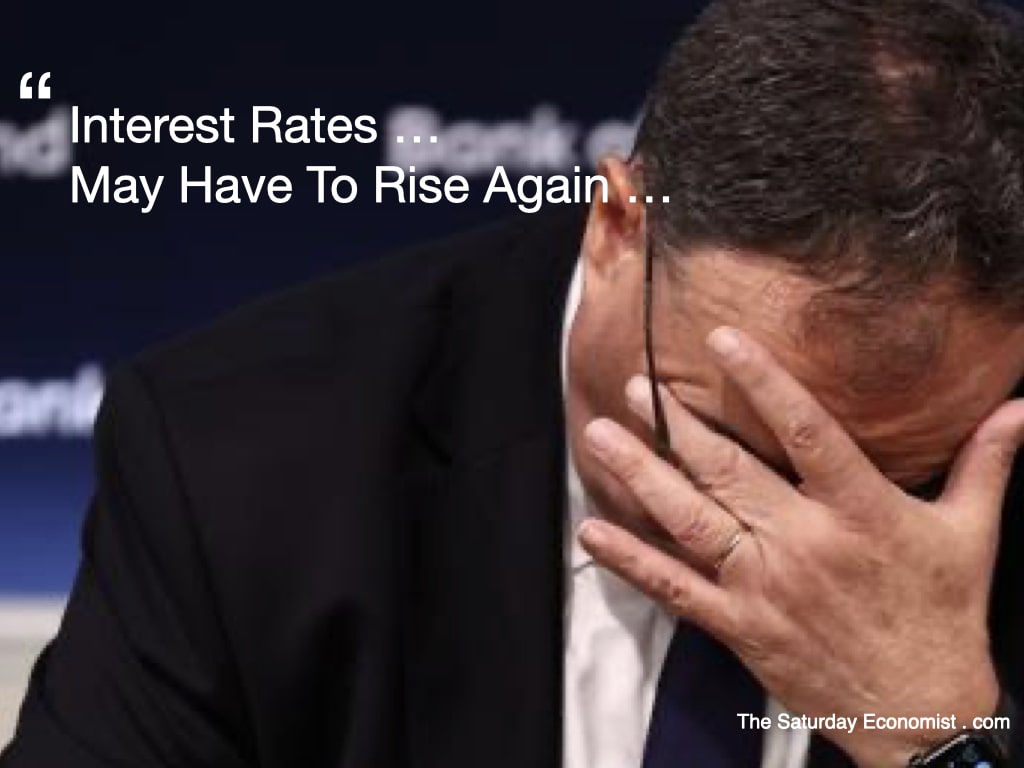|
Meeting last week, the MPC voted by six votes to three to leave base rates unchanged at 5.25%. Three members Megan Greene, Jonathan Haskel and Catherine L Mann voted to increase Bank Rate by 0.25 percentage points to 5.5%.
Interest rates will remain high for an “extended” period of time and may even have to rise again if inflation trends off track, Governor Andrew Bailey has warned. “Let me be clear, there is absolutely no room for complacency. Inflation is still too high. We will keep interest rates high enough for long enough to make sure we get inflation all the way back to the 2% target. We will be watching closely to see if further increases in interest rates are needed. But even if they are not, it is much too early to be thinking about rate cuts.” The Bank expects inflation to fall (have fallen) significantly in October, thereafter to hold below five per cent by the end of the year. “We expect inflation to take another, larger, step down in October’s data when it is published in two weeks’ time. From 6.7% in September, we think it will probably fall to just below 5%. We then expect it to remain around that level for the rest of year.” Inflation is unlikely to return to target 2% until the first quarter of 2025. The Bank published projections showing the economy will grow by 0.6% this year, then flat line next year with zero growth expected in 2024. In 2025 the economy is predicted to grow by 0.4 per cent. Major concerns include service sector inflation and wage growth. “Despite the softening in the labour market, nominal wage growth remains much higher than would be consistent with the inflation target, if sustained at these rates.” It was said. The ONS measure of annual growth in regular average weekly earnings in the private sector was 8.0% in August, higher than expected and more consistent with an inflation out turn of 4.5% rather than the 2% target. “The MPC’s latest projections indicate that monetary policy is likely to need to be restrictive for quite some time yet. How long a restrictive stance will be needed will ultimately depend on what the incoming data tell us about the outlook for inflation over the medium term.” Financial markets expect the Bank to begin cutting interest rates in the second half of next year, although some analysts think the UK’s sluggish economic performance may prompt the MPC to start loosening policy sooner. The monetarists in the camp. alarmed by the latest money supply figures. think now is the time to start cutting rates. Friedman claimed “Inflation is always and everywhere a monetary phenomenon”. M4 growth slumped to negative -3.9% in September. The 2% target could be hit much sooner than expected with a more damaging outlook for jobs and growth, if the monetary maxims hold. So interest rates may have to rise ... or may have to be slashed? The Pound trades at $1.24 this morning up from the October $1.21 low. Ten year bond yields trade down at 4.3% down from the 4.7% high last month. For the moment, the markets have decided, no cuts or hikes in prospect, rates on hold well into the New Year.
0 Comments
Leave a Reply. |
The Saturday EconomistAuthorJohn Ashcroft publishes the Saturday Economist. Join the mailing list for updates on the UK and World Economy. Archives
July 2024
Categories
All
|
| The Saturday Economist |
The material is based upon information which we consider to be reliable but we do not represent that it is accurate or complete and it should not be relied upon as such. We accept no liability for errors, or omissions of opinion or fact. In particular, no reliance should be placed on the comments on trends in financial markets. The presentation should not be construed as the giving of investment advice.
|
The Saturday Economist, weekly updates on the UK economy.
Sign Up Now! Stay Up To Date! | Privacy Policy | Terms and Conditions | |

 RSS Feed
RSS Feed